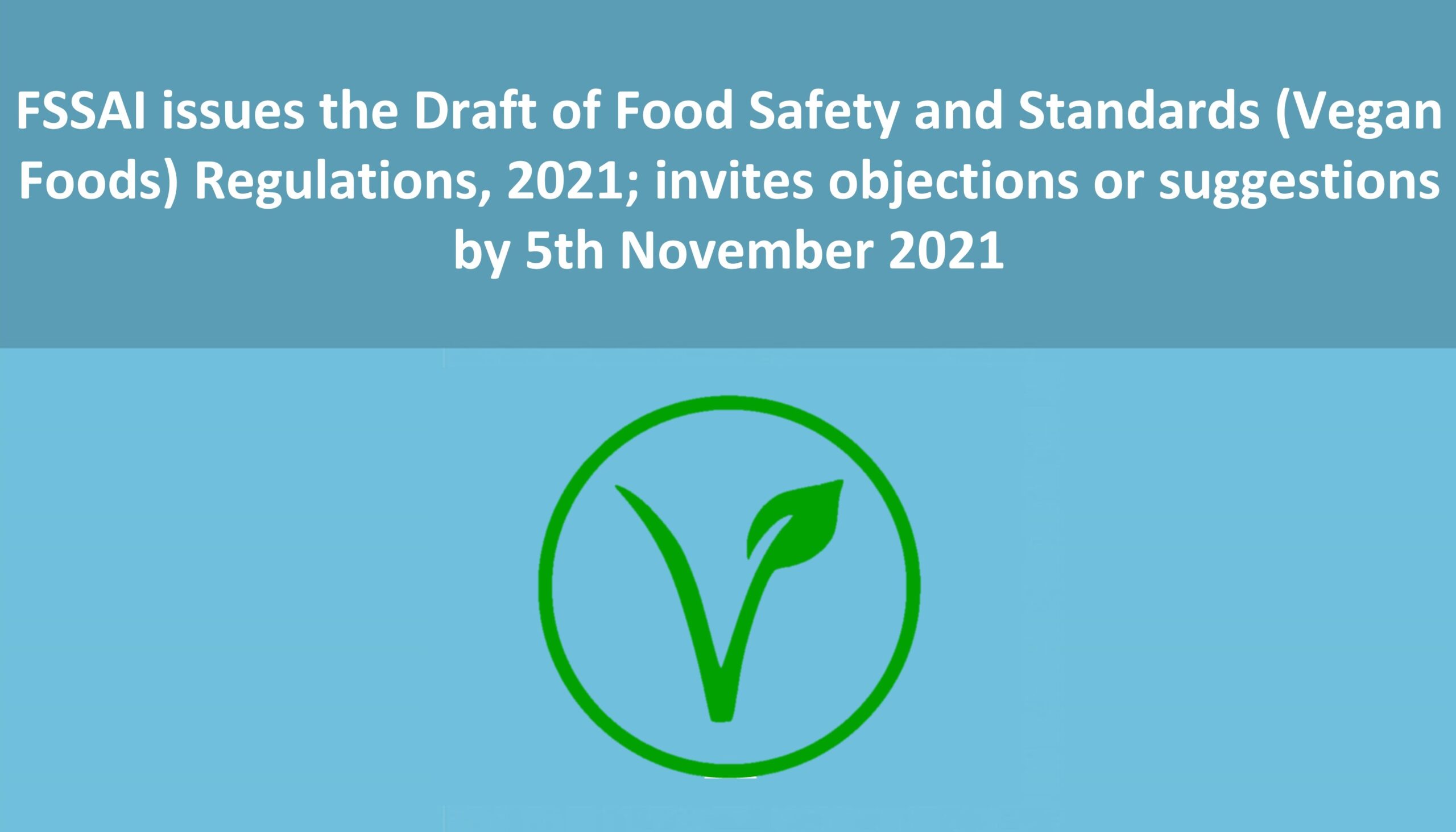The Food & Safety Standards Authority of India (“FSSAI”) has recently published the draft revision of the General Principles of Food Hygiene (“draft principles”) on September 17, 2018
inviting comments/suggestions from stakeholders.
All comments/suggestions should be sent in the prescribed format to the Chief Executive Officer, Food Safety and Standards Authority of India, 03rd Floor, Food and Drug Administration Bhawan, Kotla road, New Delhi – 110002 and emailed to codex-india@nic.in by September 30, 2018.
Applicability:
These draft principles outline the general responsibilities and duties applicable to every Food Business Operator (“FBO”) at all stages of the food chain and also provides a basis for competent authorities to oversee food safety and suitability for consumption.
Scope:
These draft principles provide a framework for producing safe food that is suitable food for consumption by outlining necessary hygiene and food safety conditions to be implemented in production, manufacturing, preparation, storage, distribution and transport of food, including primary production, and where appropriate, specific food safety control measures at certain steps..
Objectives:
The General Principles of Food Hygiene: Good Hygiene Practices (GHP) and the Hazard Analysis and Critical Control Point (HACCP) System aim to:
- Provide guidance on the application of good hygiene practices throughout the food chain to provide food that is safe and suitable for consumption;
- Provide guidance on the application of HACCP principles;
- Clarify the relationship between GHPs and HACCP; and
- Provide the basis through which sector-wise and product-specific codes of practice can be established.
Role of Food Business Operators:
Food business operators should apply the hygienic practices and food safety principles set out in this document to:
- Develop, implement and verify processes that provide food that is safe and suitable for its intended use;
- Ensure food handlers are competent for their assigned job activities;
- Ensure that consumers have clear and easily understood information to enable them to identify the presence of food allergens, protect their food from contamination, and prevent the growth/survival of foodborne pathogens by storing, handling and preparing food correctly.
- Cultivate a strong food safety culture by demonstrating their commitment to providing safe and suitable food and encouraging appropriate food safety practices;
- Contribute to maintaining confidence in domestically and internationally traded food; and
Role of Management:
Management should ensure effectiveness of the food hygiene systems in place by ensuring:
- The roles and responsibilities are clearly communicated in the food business;
- The availability of resources;
- Maintenance of the integrity of the food hygiene system when changes are planned and implemented;
- Verification of the effectiveness of the food safety control system by keeping the documentation up to date.
- The appropriate training and supervision are in place for personnel
- Compliance with relevant regulatory requirements;
- Enabling a strong focus on food safety by all personnel in providing safe and suitable food and encouraging appropriate food safety behaviours;
- The food safety forms part of the strategic direction/objectives of the organization.
Source: Food Safety and Standard Authority of India




